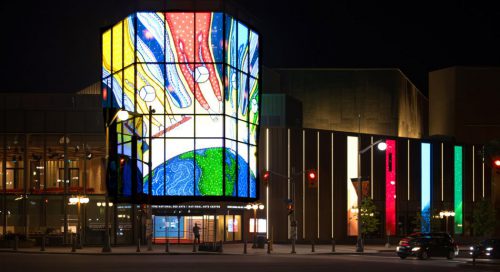Indigenous Safety Codes Officer Student Bursary
The Indigenous Bursary Program removes financial barriers in order to attract capable and experienced individuals to the safety codes officer profession and build capacity in Indigenous communities.
The Council’s Indigenous SCO Student Bursary provides Indigenous SCO students with support in the form of credits towards the completion of courses for students seeking certification as a safety codes officer. Students may apply individually or with the support of a First Nations community, Metis Settlement, or related organization.
Individual bursaries cover up to 100% of the certification cost for the discipline and level indicated on the award application form.
In addition to the credits, applicants may receive other benefits, such as memberships to professional organizations and access to professional development opportunities.
Become a Certified Safety Codes Officer
Safety codes officers, also known as SCOs, have varied and rewarding careers, with day-to-day duties that typically include reviewing construction plans, issuing permits, performing site inspections, and providing information and advice on code requirements.
Learn more about becoming a safety codes officer
Check out the entrance requirements for safety codes officer certification
Learn about training from the Safety Codes Council
How to Apply
- Applicants must submit the current online application form or download and submit the print application form.
- Applicants may be asked to provide additional documentation over the course of the application process.
- Communities who are supporting individual applicants are asked to complete a letter of support.
For help submitting an application, please contact the Certification department.
Now Accepting Applications
We are currently accepting applications for the 2023 bursary on an ongoing basis until November 30, 2023.
Decisions will be made within 4-6 weeks of receipt of an application.
Award Eligibility
To be eligible for an award, applicants must:
- reside in Alberta, and
- fulfill the entry qualifications for the discipline and level of certification they are looking to pursue with the help of the award.
Selection Criteria
After meeting the eligibility criteria, award recipients will be selected based on the following criteria:
- Financial need
- A high potential to contribute positively to the Safety Codes system based on previous experience and identified interests
Selection Committee
The Safety Codes Council Indigenous Bursary committee is comprised of the following:
- The Administrator of Certification, or delegate
- The Team Lead (Certification), or delegate
- Three additional members representing safety system and/or Indigenous stakeholders from a variety of sectors and disciplines, appointed by the Administrator of Certification.
Benefits of Certification
There are many benefits to certification:
- Career development: Becoming a certified SCO opens up career opportunities in the safety system. Once an individual is certified, they are qualified to seek employment with accredited organizations that deliver safety services throughout Alberta.
- Safety Service Delivery Capacity: The training required to become a certified SCO is relevant to many of the jobs commonly found in Indigenous communities. For example, housing department staff would benefit from having working knowledge of the building code to oversee the construction and maintenance of buildings and management of contractors.
- Economic Development: Communities that have certified SCOs could create an agency that can provide safety codes services on a fee-for-service basis.
Success Story: The Council’s Partnership with Siksika Nation
In 2017, the Siksika Nation came to us with an idea to become a self-reliant community for safety codes inspections. Collaborating with the Council, Municipal Affairs, Alberta Community and Social Services, and the City of Calgary, Siksika Nation began working towards the creation of a program to train qualified Indigenous tradespeople to become SCOs.
By the end of 2019, eight SCOs had earned their certification in Building Residential and Building Part 9. One of these SCOs also earned their certification in Plumbing and Gas Group A. Now certified, these new SCOs are able to invest their skills in their community and have a solid career path anywhere in the province to help them achieve their goals of being a self-reliant community for safety codes inspections.
This program is not over: the next phase will see participants achieve the next level of certification for Building SCOs (Building Part 3). We look forward to continuing to work with the Siksika Nation.
